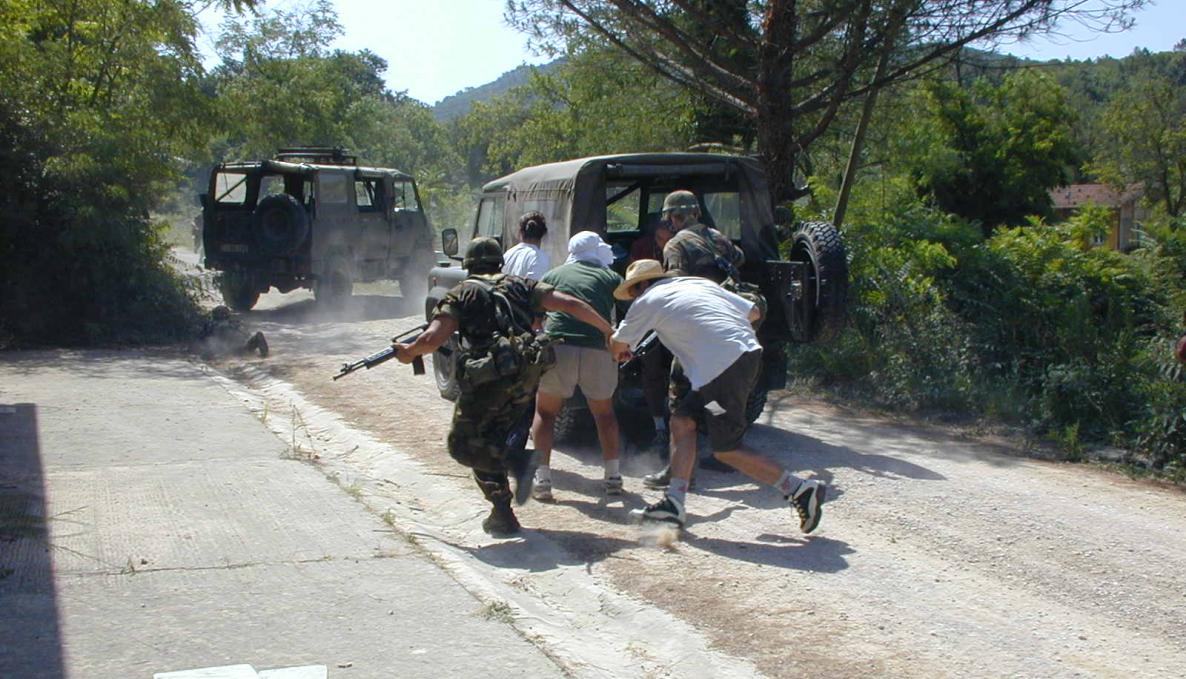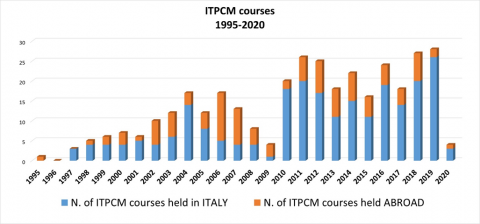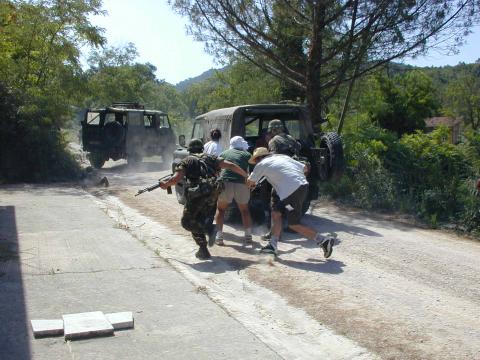Trainings

Figure 1 Number of ITPCM courses organised between 1995 and 2020
Since 1995, the activities of the ITPCM programme have continuously expanded in number, scope and geographical target. During 27 years of activity, the ITPCM has organised almost 500 courses: in Italy, at the premises of Scuola S. Anna, in Europe and in other continents, acquiring direct experience in Africa, South-East Asia, the Middle East, the Balkans, Latin America, Eastern and Central Europe, training more than 9.500 persons.
Today, the ITPCM offers a wide range of courses, specifically designed to meet the different learning needs of its participants. The longest and most comprehensive ones are the Masters, such as the Master in Human Rights and Conflict Management. It aims to provide students from different cultures and background with a good understanding of the nexus between Human Rights and Conflict Management theory and practice.
The online Master in Electoral Policy and Administration (MEPA), developed in collaboration with the United Nations Institute for Training and Research (UNITAR) for current and aspiring election professionals, represents another important success of the ITPCM. The MEPA is delivered entirely online on a dedicated platform, where all lessons and didactic materials are accessible 24/7. It is composed by 24 modules, focused on different electoral-related issues and it is designed to last one year. However, for those interested in covering only some specific parts of the programme, it envisaged the to attend single modules. The MEPA is available in English, French, Portuguese and Arabic.
In addition to these programmes, the ITPCM organises a vast number of short courses of different kind. In fact, the structure and curriculum of a training course is always very different as it is to adapt to the specific needs of the audience. As an example, while pre-deployment trainings are mission-specific courses, designed to provide international staff with all the tools that are necessary to take part in a mission; whereas, basic/core courses are designed for those who are approaching a certain topic for the first time. As such, basic courses typically last between 1 and 3 weeks and aim at teaching participants the foundational knowledge and the skills that they will need for their continuous professional development. On the contrary, specialisation courses are designed for people that already possess at least a basic knowledge in a certain field, as they aim at increasing their specific knowledge by focusing on a certain topic, e.g., a specific branch of that area of expertise or a recent development in that field. Specialisation courses usually last a week and can target both international and national staff.
Moreover, the “Training of Trainers” or, more simply just “ToT” courses are designed for people who already have a solid knowledge of a certain matter and willing to become skilled instructors. These curricula are meant to provide the participants with a set of tools and competences to always improve their own knowledge and to be able to transfer it through effective communication and teaching techniques.
Among these courses and training activities, it is to mention several courses organised for EU personnel deployed to civilian crisis missions across the globe. These courses are designed and delivered within the framework of specific tenders and programmes in cooperation with EU partners and other institutions of which the Scuola is a member. These courses include the most recent Hostile Environment Awareness Training courses (HEAT) for EU staff deployed to High-Risk Countries implemented in partnership with the Carabinieri corps, EUCTI Training on Human Rights Protection and several Training of Trainers (ToT) courses, amongst others.


